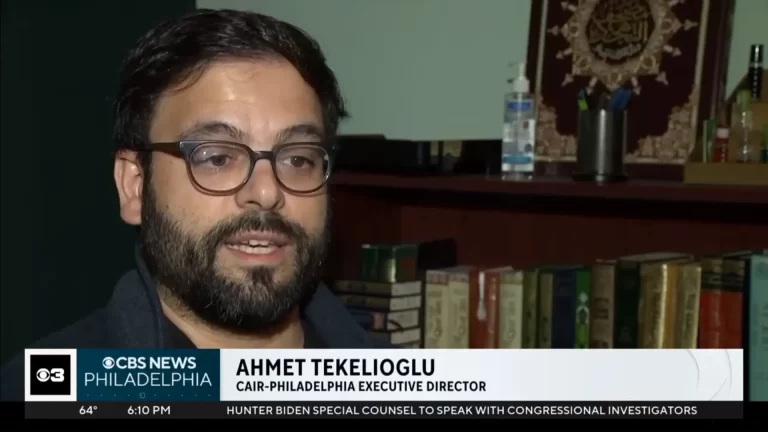![]()
by Michael Matza
Philadelphia Inquirer
A rabbi, an interfaith leader, and a Temple University professor joined the Council on American-Islamic Relations (CAIR) on Wednesday to denounce as “Islamophobic” a Pennsylvania bill they say is an attack on sharia law, which is followed by devout Muslims.
House Bill 2029, introduced by Rep. Rosemarie Swanger (R., Lebanon), says state courts shall not, in deciding cases, “consider a foreign legal code or system” that lacks “the same fundamental liberties” as the state and federal Constitutions.
The language is plain and seems innocuous. Swanger’s June 14 letter promoting the bill to her colleagues, however, repeatedly mentioned sharia law as a menace.
“Increasingly, foreign laws and legal doctrines – including and especially sharia law – are finding their way into U.S. court cases,” she wrote. “Invoking sharia law, especially in family law cases, is a means of imposing an agenda on the American people.”
In her October memo to colleagues, Swanger warned of “infiltration of foreign legal doctrine” but made no mention of sharia.
Critics say her bill is based on a model of legislation, introduced nationally two years ago, that has had the effect of ostracizing Muslims.
Separately, the Anti-Defamation League of Eastern Pennsylvania, a Jewish antibias group, also criticized the bill.
Since 2009, more than two dozen states have considered measures to restrict judges from consulting sharia, or foreign and religious laws more generally.
“This bill feeds the perception that Muslims are anti-American foreigners,” CAIR’s Philadelphia chapter director, Moein Khawaja, said at a Center City news conference. He called on Gov. Corbett to veto the bill if it reaches his desk.
“You seldom see such direct evidence of discriminatory purpose, particularly in a public document,” said CAIR attorney Amara Chaudhry, waving a copy of Swanger’s June memo. Nor, she added, is the bill needed, because the Supreme Court has ruled that religious laws cannot be used to circumvent generally applicable civil laws.
In a telephone interview from Harrisburg, Swanger’s aide, Lily Horst, said the critics were misinformed about the bill’s intent. Swanger was not immediately available for comment.
Sharia is the process by which Islamic jurists, using the Koran and the sayings of Muhammad, attempt to determine God’s will in every aspect of Muslim life. Unlike the U.S. Constitution, it is not a single, universally applied document.
U.S. courts are frequently called on to interpret foreign law in international commercial disputes. They interpret Jewish, Muslim, and Catholic canon law as well.
Speaking at the news conference, Rabbi Linda Holtzman of Philadelphia’s congregation Mishkan Shalom said she feels in the June memo for the Pennsylvania bill “the echoes . . . of Germany in the 1930s,” when Jewish law repeatedly was defamed “as a means of defaming all of Jewish tradition.”
Even if the bill is ruled unconstitutional, said Vic Compher of Philadelphia’s Interfaith Walk for Peace and Reconciliation, Muslims will have been harmed because the legislative process creates “a forum for Islamophobic rhetoric.”
Khalid Blankinship, a professor of religion at Temple University, said America’s Muslim population is smaller than 1 percent.
“The purpose of the sharia law for the Muslims,” he said, “is regulating matters [of marriage, inheritance, etc.] among themselves . . . just as the Jewish law practiced by Orthodox Jews is for that very purpose.”
Responding to a question about sharia being used to mete out gruesome punishments in some parts of the world, such as Afghanistan under the Taliban, he said that could never happen in the United States.
Gadeir Abbas, an attorney with CAIR’s headquarters in Washington, said the bill introduced in Pennsylvania is based on legislation written by a Jewish lawyer from Brooklyn, N.Y., who has a history of controversial statements about race and immigration.
Such bills, he contended, are “vehicles for stigmatizing” American Muslims.





